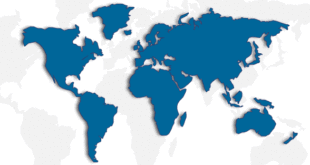The European Union gambling market is estimated at around € 84.9 billion and grows at an annual rate of around 3%.[1] It has become evident that online gambling is particularly popular with around 6.8 million consumers in the European Union[2]. In 2012, online gambling services represented more than 12% of the EU’s gambling market with annual revenues of over €10 billion. Annual revenues in 2015 for online gambling are expected to increase to €13 billion.[3] Many EU Member States authorise and supervise online gambling whilst, on the other hand, some have no specific regulations or impose complete bans. It has been promulgated that perhaps a single legal framework encompassing all EU Member States is much anticipated.
What is online gambling?
The consensus on gambling is that it is about the risks, the odds and at times the outcome is purely determined by luck. Whilst sometimes gambling is about meticulously planning your next move, the major motivating catalyst underpinning it is the notion of unpredictability. Mazur not only evokes Burke’s famous observation that “Gaming is a principle inherent in human nature”[4] but he also takes this further by accentuating that since the dawn of time, humans were coupled with “reflexively gambling every day against the impending extinction of their race”[5].
Whilst the traditional gambling methods such as poker, sports betting, bingo, and racing are well known, there has been a recent burgeoning of online gaming. Commonly known as Internet gambling, virtual gaming has become a growing phenomenon in many modern day societies. It could even be argued to a certain extent that the preeminent stigma associated with gambling has gradually taken a secondary role. Globally, and particularly in Europe, online gaming has grown into a multi-billion money making business rendering it a more socially acceptable pastime. Nonetheless, it has not ceased to be considered by some as a threat to certain vulnerable groups in society[6]. Consequently, this raises some concerns regarding the extent to which it can be treated as just another economic activity requiring full market liberalisation.
Regulatory approaches within the different jurisdictions:
Gambling is considered an economic activity categorised under the free movement of services and establishment. It is important to note that the free movement of services and establishment is one of the four fundamental freedoms of the single market of the EU. Online gambling in the EU is characterised by a rather diverse regulatory framework. Consequently, there is no single, cohesive piece of legislation for gambling services. Some EU countries are under a monopolistic regime run by a sole public or a private operator, whilst others have established licensing systems for more than one operator. Due to the rapidly evolving nature of online gaming and its increasing demand, supply of such services is therefore axiomatic. It is not uncommon for operators licensed in one EU country to offer gambling services in other countries without the necessary authorisation required in those other countries. Therefore, all sorts of gambling services can operate across borders and outside the control of individual EU countries’ national authorities. The unauthorised cross-border market comprises of both a “black market” and a “grey market”. The black market concerns the unlicensed clandestine betting and gaming such as that from third countries whilst the grey market concerns operators licensed in one or more Member States promoting or providing gambling services to citizens in other Member States without having obtained a prior specific authorisation to do so.[7]
Due to the cross-border supply of such services, online gaming raises some concerns linked to the free movement of services (Article 56 TFEU)[8]. In Article 56 of the TFEU, there are indubitably prevalent undertones of a liberalisation of the gambling sector. Article 56 of the TFEU prohibits restrictions on the freedom to provide services to recipients in other Member States. In Schindler the CJEU[9] confirmed for the first time that the provision and use of cross-border gambling offers is an economic activity that falls within the scope of the Treaty. Furthermore, it was held in the Gambelli case that services offered by electronic means were included and that national legislation which prohibits operators established in a Member State from offering online gambling services to consumers in another Member State, or hampers the freedom to receive or to benefit as a recipient from the services offered by a supplier established in another Member State, constitutes a restriction on the freedom to provide services. [10]
It is imperative to note that certain countries, such as Italy and Denmark, have implemented specific legislation that allows them to license and regulate companies that operate online gambling sites or provide industry services. They are referred to as online gambling jurisdictions or licensing jurisdictions. Within these jurisdictions, an organisation is thus responsible for issuing licenses (licensing authorities). Interestingly, regulatory practices are not the same in all jurisdictions. We can identify some broad categories: totally prohibitive jurisdictions, protectionist prohibitive jurisdictions, completely liberal systems, restrictive liberal jurisdictions, and liberal prohibitive systems[11]. In France, three forms of online gambling became legal in 2010[12]. Even though many countries followed this wave of liberalisation, online gambling in Russia is still explicitly prohibited.
In Germany, legislation was introduced in 2008 that banned all forms of online gaming and betting, with the exception of horse racing betting other than those offered by the state. The European Betting and Gaming Association claimed that this legislation breached EU rules. Consequently, in January 2012, Schleswig-Holstein[13] passed a liberal gambling law enabling online operators to apply for licences. The other fifteen German federal states passed the reformed Interstate Treaty on Gambling 2012 (ISTG). To a certain extent the ISTG liberalised the German gambling industry but it also maintained the state monopoly for games of chance and the general ban on online gambling as set out under the previous legislation. After it had granted licenses to online operators, Schleswig-Holstein withdrew its gambling law in January 2013 and joined the ISTG. The ISTG is currently the only applicable gambling law in Germany. The licences however, already granted under Schleswig-Holstein’s gambling law remain valid for a period of six years. Paradoxically, today in Germany there are online operators who may still lawfully offer gambling services despite the prohibition under the ISTG.
The United Kingdom falls under the category of a completely liberal system; there are no limitations concerning the nationality of users or the origin of online operators. According to the Gambling Act of 2005, the Gambling Commission has the power to issue a license to online gambling operators and impose fines or revoke licenses where necessary. Even though the UK legislation regarding gambling is relatively clear-cut, one pertinent inconvenience for players in this completely liberal system is the high tax rates. For the State however, this is indubitably a good source of revenue.
Harmonisation: A pan-European online gambling regulation?
Surprisingly, many Member States do not yet have a definition of online gambling at a national level. Consequently, this brings to the fore an inconsistent approach in the regulation of online gambling across the EU. In light of the subsidiarity principle[14], the EU has decided that the supply of online gambling services is not subject to a specific regulation. It has been argued[15] that the EU courts give Member States remarkable discretion to regulate online gambling services. The Court accentuated in Liga Portuguesa[16] and its subsequent rulings that due to the lack of harmonisation and the margin of discretion for Member States to determine the requirements and level of protection, there exists no duty to mutually recognise authorisations issued by other EU Member States in the field of online gambling.
Nevertheless, it has been made apparent that with national measures alone, Member States are unable to provide individuals with effective protection primarily due to the cross-border element of online gambling. It could therefore be argued that there is an inherent need for harmonisation across the gambling regulation of EU member states. In 2012 the European Commission Communication “Towards a comprehensive European framework for online gambling”[17] identified the need for an administrative cooperation between regulatory authorities in the EU. Harmonisation would perhaps make sense for a number of social and economic reasons.
Christina AVGOUSTI
[1] <http://ec.europa.eu/growth/sectors/gambling/index_en.htm>
[2] Ibid note 1
[3] Ibid note 1
[4] Edmund Burke, British House of Commons Record, February 11, 1780
[5] Joseph Mazur, What’s Luck Got to Do With It? The History, Mathematics, and Psychology of the Gambler’s Illusion, Princeton University Press, 17 May 2010
[6] It is interesting to note that under Islamic Shariah law, gambling is haraam and its practice is prohibited. Haraam is the legal term for what is forbidden or inviolable under Islamic law.
[7] Ibid note 1
[8] Article 56 of the Treaty on the Functioning of the European Union:
Within the framework of the provisions set out below, restrictions on freedom to provide services within the Union shall be prohibited in respect of nationals of Member States who are established in a Member State other than that of the person for whom the services are intended.
The European Parliament and the Council, acting in accordance with the ordinary legislative procedure, may extend the provisions of the Chapter to nationals of a third country who provide services and who are established within the Union.
[9] Case C-275/92, ECR 1994
[10] Case C-243/01, ECR 2003
[11]Salvatore Casabona, “The EU’s online gambling regulatory approach and the crisis of legal modernity” Working Paper No.19, January 2014
[12] The Loi n. 2010-476 relative à l’ouverture à la concurrence et à la régulation du secteur des jeux d’argent et de hasard en ligne has introduced a national licensing system that allows for the cross-border provision of sports betting on a non-discriminatory basis while providing strict controls on gaming.
[13]One of the 16 German Federal States
[14] The principle of subsidiarity, alongside the principles of conferral and proportionality, are fundamental to the functioning of the EU and European decision-making. The subsidiarity principle determines when the EU is competent to legislate, and contributes to decisions being taken as closely as possible to the citizen. The principle of subsidiarity is established in Article 5 of the Treaty on European Union.
[15] Van den Bogaert, Cuyvers, Money for nothing: The case law of the EU Court of Justice on the regulation of gambling, Common Market Law Review, 1175-1213, (2011)
[16] C-42/07 – Liga Portuguesa de Futebol Profissional and Bwin International Ltd v Departamento de Jogos da Santa Casa da Misericórdia de Lisboa, judgment of 8 September 2009
[17] <http://eur-lex.europa.eu/legal-content/EN/TXT/PDF/?uri=CELEX:52012DC0596&from=EN>
 Le petit juriste Site de la revue d'actualité juridique
Le petit juriste Site de la revue d'actualité juridique





